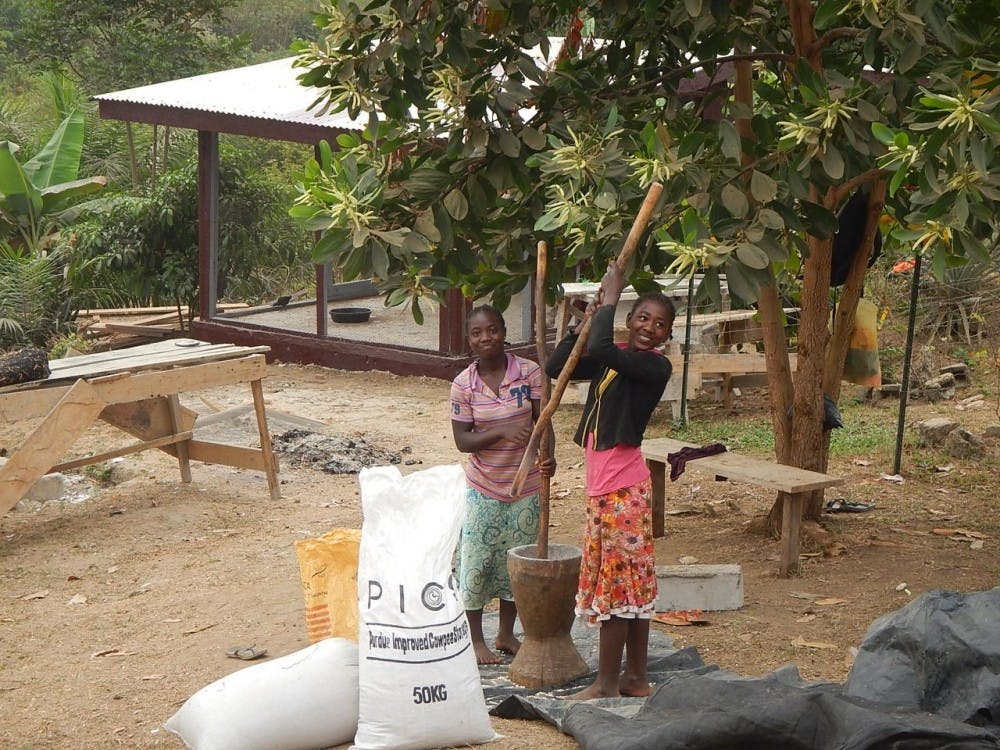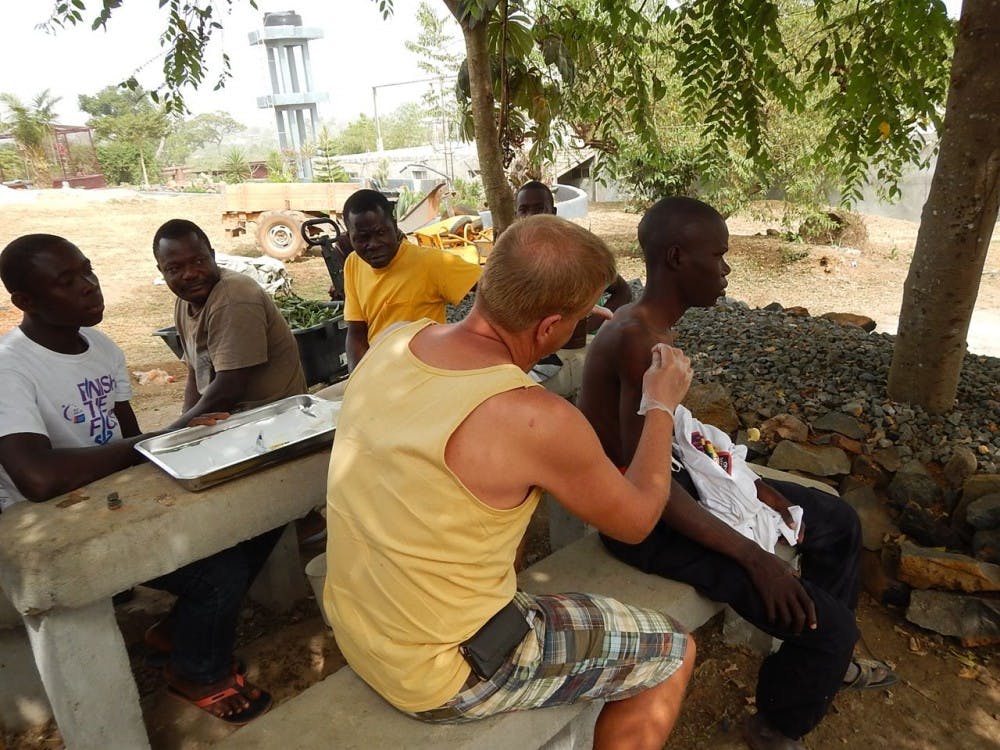By Joe Friedrichsen | Echo

With the scare of Ebola's spread in the U.S. seemingly over, the media attention paid to the virus's West Africa impact is dissipating. But for Gina and Travis Sheets, the struggle of living in an impoverished country with the lingering threat of Ebola remains a constant challenge.
Although the Sheets are Indiana natives, they volunteer at Liberia International Christian College's Agriculture Center (Ag). There they teach agricultural education to share the Gospel and promote the economic and social well-being of Liberians.
The Ag is located in the northern Liberian city of Ganta, just south of the Guinea border. Though Ganta is just 130 miles north of Liberia's capital Monrovia, the journey takes between five and eight hours due to poor road conditions.
While daily life is already difficult for Liberians, Ebola is making it even tougher. The virus impacts various facets of Liberian life. Traveling is one of them.
Gina explained that in addition to immigration checkpoints, there are now Ebola checkpoints. At these stops, travelers must get out of their vehicles, wash their hands in bleach and have their temperature taken with a point-and-shoot thermometer.
Gina also said that throughout the Ganta area, markets are largely empty. Consequently, the daily buzz of conversation has decreased and fewer people mingle in the streets-bringing an eerie quietness to once-bustling villages. Gina also noted that stray dogs were more scarce.
Another aspect of Liberian life touched by the recent Ebola outbreak are the everyday, customary social interactions.
"Liberians are very social people-often shaking your hand five or six times in a conversation-but that has all stopped," Gina said.
Because of the anxiety Ebola's presence causes, the relationships Liberians have with friends and family can become strained should anyone suddenly become ill.
In a late January email, Travis Sheets emotionally wrote about an Ag day worker named Ozino. The young man arrived at the Ag compound one night emaciated, red-eyed and hurting badly.
"He had been kicked out of the place he was renting because he was obviously sick, and the fear of Ebola runs deep around here," Travis wrote.
After Ozino tested negative for Ebola, it was discovered he instead had a hernia and malaria, hence the red eyes. Ultimately, Ozino had surgery to remove the hernia and is currently recovering.
Cases like Ozino's lead Liberians to tell the Sheets that they would prefer civil war and real bullets, rather than what they call "Ebola's invisible bullets." Explaining this, Travis said Liberians just want to see what it is that's actually killing them.
In an email, Travis said he and Gina often find themselves acting as parents to many Liberians.
"Everyday we meet unexpected challenges and 'all eyes' are watching our every move," Travis said. "We need to be wise in our actions and swift in doing the right thing."
Despite the uncertainty and anxiety Ebola brings, Gina said the general panic in the area is gradually lessening as Ebola death and daily infection numbers drop. She hopes this trend will allow a sense of normalcy to one day return and again take over the daily routine in Ganta.




